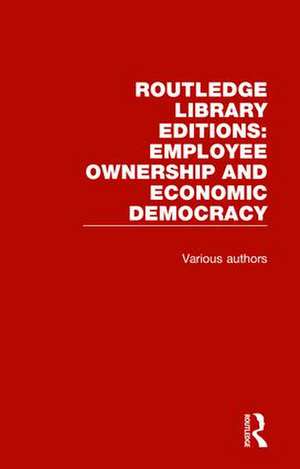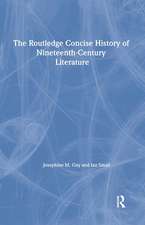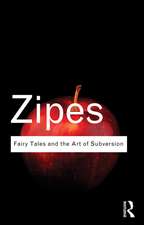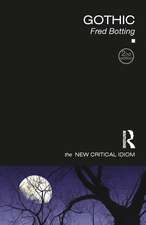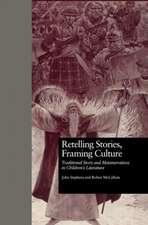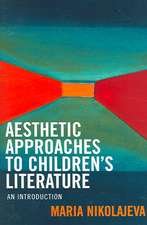Routledge Library Editions: Employee Ownership and Economic Democracy: Routledge Library Editions: Employee Ownership and Economic Democracy
Autor Variousen Limba Engleză Hardback – 28 sep 2017
Preț: 6414.73 lei
Preț vechi: 9759.89 lei
-34% Nou
Puncte Express: 9622
Preț estimativ în valută:
1227.48€ • 1284.81$ • 1021.63£
1227.48€ • 1284.81$ • 1021.63£
Carte tipărită la comandă
Livrare economică 31 martie-14 aprilie
Preluare comenzi: 021 569.72.76
Specificații
ISBN-13: 9781138299627
ISBN-10: 1138299626
Pagini: 3994
Dimensiuni: 156 x 234 mm
Greutate: 0.45 kg
Ediția:1
Editura: Taylor & Francis
Colecția Routledge
Seria Routledge Library Editions: Employee Ownership and Economic Democracy
Locul publicării:Oxford, United Kingdom
ISBN-10: 1138299626
Pagini: 3994
Dimensiuni: 156 x 234 mm
Greutate: 0.45 kg
Ediția:1
Editura: Taylor & Francis
Colecția Routledge
Seria Routledge Library Editions: Employee Ownership and Economic Democracy
Locul publicării:Oxford, United Kingdom
Public țintă
Postgraduate and UndergraduateCuprins
1. People's Capitalism?: A Critical Analysis of Profit-Sharing and Employee Share Ownership Lesley Baddon, Laurie Hunter, Jeff Hyman, John Leopold and Harvie Ramsay (1989) 2. Worker Participation in Europe J. R. Carby-Hall (1977) 3. New Forms of Ownership: Management and Employment Edited by Glenville Jenkins and Michael Poole (1990) 4. The Co-operative Movement in Italy: With Special Reference to Agriculture, Labour and Production Edward Archibald Lloyd (1925) 5. Employee Investment Funds: An Approach to Collective Capital Formation Rudolf Meidner with the Assistance of Anna Hedborg and Gunnar Fond (1978) 6. Profit-Sharing and Industrial Co-Partnership in British Industry, 1880-1920: Class Conflict or Class Collaboration? Jihang Park (1983) 7. Workers' Participation in Industry Michael Poole (1982) 8. Towards a New Industrial Democracy: Workers' Participation in Industry Michael Poole (1982) 9. The Origins of Economic Democracy: Profit Sharing and Employee Shareholding Schemes Michael Poole (1989) 10. Towards Industrial Democracy: Europe, Japan and the United States Edited by Benjamin Charles Roberts (1979) 11. Workers' Control Ernie Roberts (1987) 12. Self-Management and Efficiency: Large Corporations in Yugoslavia Stephen R. Sacks (1983) 13. Participative Management: An Analysis of its Effect on Productivity Michael H. Swearingen (1997) 14. Mondragon: An Economic Analysis Henk Thomas and Chris Logan (1982) 15. The Economics of Workers' Management: A Yugoslav Case Study Jan Vanek (1972) 16. Co-operation and the Future of Industry Leonard S. Woolf (1918)
Notă biografică
Multivolume collection by leading authors in the field.
Descriere
The volumes in this set, originally published between 1918 and 1997, draw together research by leading academics in the area of employee ownership and economic
Recenzii
“The timely re-issue of the prescient Ethnoscapes series provides an invaluable contribution to current concerns about built and natural environments. The breadth of coverage of these books, includes public participation in environmental modifications, the impact of housing design on the quality of life, cross-cultural comparisons of placemaking, and the role of building aesthetics on well-being, across many countries and contexts adds up to a treasure trove of innovative research. Now more than ever we need the benefit of the insights and findings of these scholars and professional (many of course who are both) who, over three decades, have studied crucial aspects of interactions between people and their surroundings.”
Ricardo García Mira, Professor of Social Psychology, University of A Coruna, Galicia, Spain. Former Spanish MP.
“The reissued volumes in the Ethnoscapes series were ground- breaking when they first appeared and remain fresh today. These books are essential for understanding how design and the use of space has cultural and human meaning that “artificial intelligence” could never achieve. They offer a vital and timely antidote to mind-numbing apology for the appropriation of civic space and corporate reproduction of McMansions and shopping malls.”
Ben Wisner, Honorary Visiting Professor, University College London, UK.
“The physical aspects of our wonderfully complex world combine with social and psychological factors, to give a myriad of joys and sorrows accompanying our lifeworld activities. To make existence manageable, we need to find order within such chaos. As researchers of all types, but especially social scientists, we are driven to identify networks of causes and effects. This series provides excellent examples of such writing, concerning natural and built environments, from a host of scholars, representing a range of disciplines.”
Andrew Turk, Adjunct Associate Professor, Murdoch University, Western Australia.
“People interested and concerned about how we are interacting with and shaping our built and natural environments will find the insights and findings in this re-issued Ethnoscapes series of great value. Over more than 30 years this accumulated cornucopia of research reveals how important it is to understand the meanings and significance of many aspects of human- environment transactions. These include studies of user involvement in design, with its implications for place-making, as well as crucial explorations of the meaning of home and the role of environmental aesthetics for our wellbeing. Every volume opens new doors, often being the forerunners to major areas of study.”
Arza Churchman, Professor Emerita at Technion- Israel Institute of Technology, Haifa, Israel.
“The re-issue of the Ethnoscapes series provides everyone who cares about human-environment studies a wonderful opportunity to re-acquaint themselves with many groundbreaking efforts in the field. The series provides a wide range of explorations by researchers who have helped to make sense of persons in interaction with their surroundings, and contributed to inspired placemaking”.
Robert Gifford, Professor of Psychology and Environmental Studies, University of Victoria, British Columbia, Canada.
Ricardo García Mira, Professor of Social Psychology, University of A Coruna, Galicia, Spain. Former Spanish MP.
“The reissued volumes in the Ethnoscapes series were ground- breaking when they first appeared and remain fresh today. These books are essential for understanding how design and the use of space has cultural and human meaning that “artificial intelligence” could never achieve. They offer a vital and timely antidote to mind-numbing apology for the appropriation of civic space and corporate reproduction of McMansions and shopping malls.”
Ben Wisner, Honorary Visiting Professor, University College London, UK.
“The physical aspects of our wonderfully complex world combine with social and psychological factors, to give a myriad of joys and sorrows accompanying our lifeworld activities. To make existence manageable, we need to find order within such chaos. As researchers of all types, but especially social scientists, we are driven to identify networks of causes and effects. This series provides excellent examples of such writing, concerning natural and built environments, from a host of scholars, representing a range of disciplines.”
Andrew Turk, Adjunct Associate Professor, Murdoch University, Western Australia.
“People interested and concerned about how we are interacting with and shaping our built and natural environments will find the insights and findings in this re-issued Ethnoscapes series of great value. Over more than 30 years this accumulated cornucopia of research reveals how important it is to understand the meanings and significance of many aspects of human- environment transactions. These include studies of user involvement in design, with its implications for place-making, as well as crucial explorations of the meaning of home and the role of environmental aesthetics for our wellbeing. Every volume opens new doors, often being the forerunners to major areas of study.”
Arza Churchman, Professor Emerita at Technion- Israel Institute of Technology, Haifa, Israel.
“The re-issue of the Ethnoscapes series provides everyone who cares about human-environment studies a wonderful opportunity to re-acquaint themselves with many groundbreaking efforts in the field. The series provides a wide range of explorations by researchers who have helped to make sense of persons in interaction with their surroundings, and contributed to inspired placemaking”.
Robert Gifford, Professor of Psychology and Environmental Studies, University of Victoria, British Columbia, Canada.
